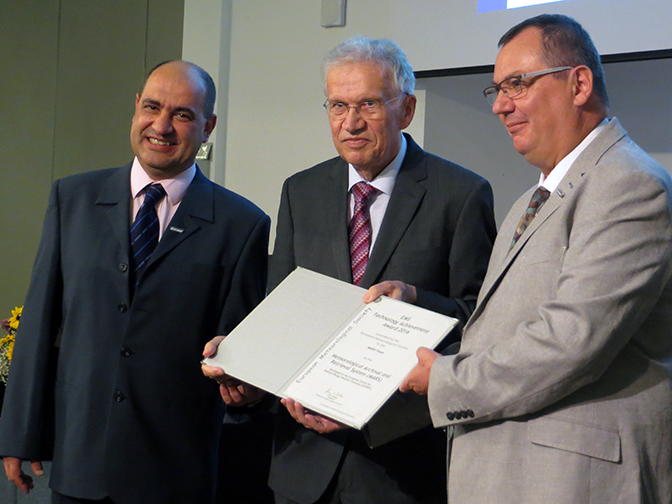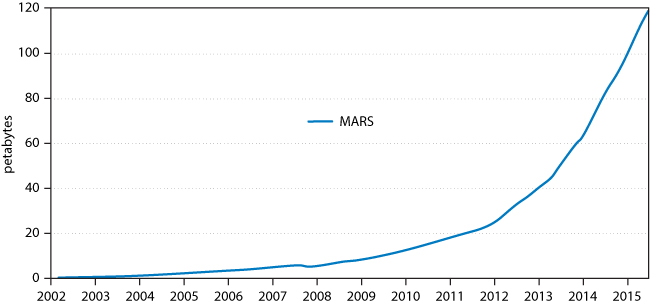

The team in charge of ECMWF’s Meteorological Archival and Retrieval System (MARS) received the European Meteorological Society (EMS) Technology Achievement Award 2016 in the Italian city of Trieste on 13 September.
EMS President Horst Böttger presented the certificate to the MARS team’s senior members Manuel Fuentes (left) and Baudouin Raoult (right) during the Society’s Annual Meeting.
“MARS constitutes a unique approach to meteorological data storage and retrieval technology that has had and still has a huge impact on developments in many organisations by making vast quantities of meteorological data accessible to thousands of organisations and individuals,” Dr Böttger said in the award letter.
“I am delighted that the EMS Technology Achievement Award 2016 is presented to the MARS team,” he added.
ECMWF’s MARS team emphasised that developing the system has been and continues to be a collaborative enterprise.
“It is an honour for us to collect this award on behalf of the many colleagues who have helped to make MARS such a successful system,” Manuel Fuentes said.
MARS is the first project to receive the award, together with the Distributed ‘real-time’ Environmental Measuring System developed at the Slovenian Environment Agency.
The award seeks to recognise influential technological achievements in meteorology and related areas.
Growth in data
MARS started operating in 1987 on a mainframe with 12.5 gigabytes of disk space and a mass storage system able to hold 35 gigabytes.
Today the archive comprises more than 120 petabytes and grows by 100 terabytes a day.
The growth in data has accelerated considerably over time. All data from 1980 to 2003 fit on 50 of the 22,000 storage tapes in use today.

Today MARS holds more than 120 petabytes of data.
The range of data MARS holds has also grown significantly.
Initially covering medium-range global NWP output in the form of deterministic analyses and forecasts, it now extends to ensemble forecasts, ensemble long-window data assimilation systems, limited-area models and seasonal and decadal time spans.
A key achievement of MARS is that the many changes to the system that have been made over the years have been implemented without any impact on users.
This means that a data request written in the 1980s is still valid now and will return the same data.
MARS can handle research experiments as well as operational output, and it stores the results of various generations of climate reanalyses.
The system has helped to fulfil one of the objectives written into ECMWF’s Convention, which is to “collect and store appropriate data” and to make them available to the Centre’s Member States.
